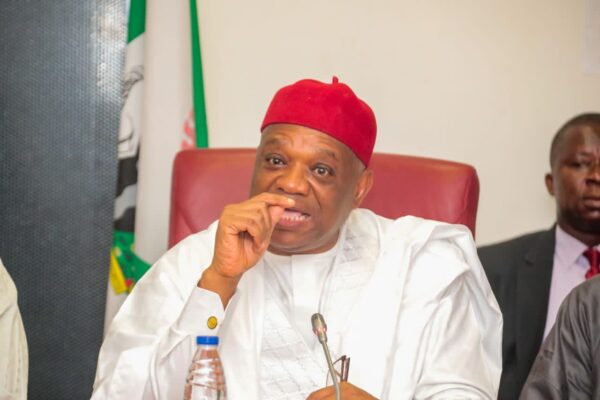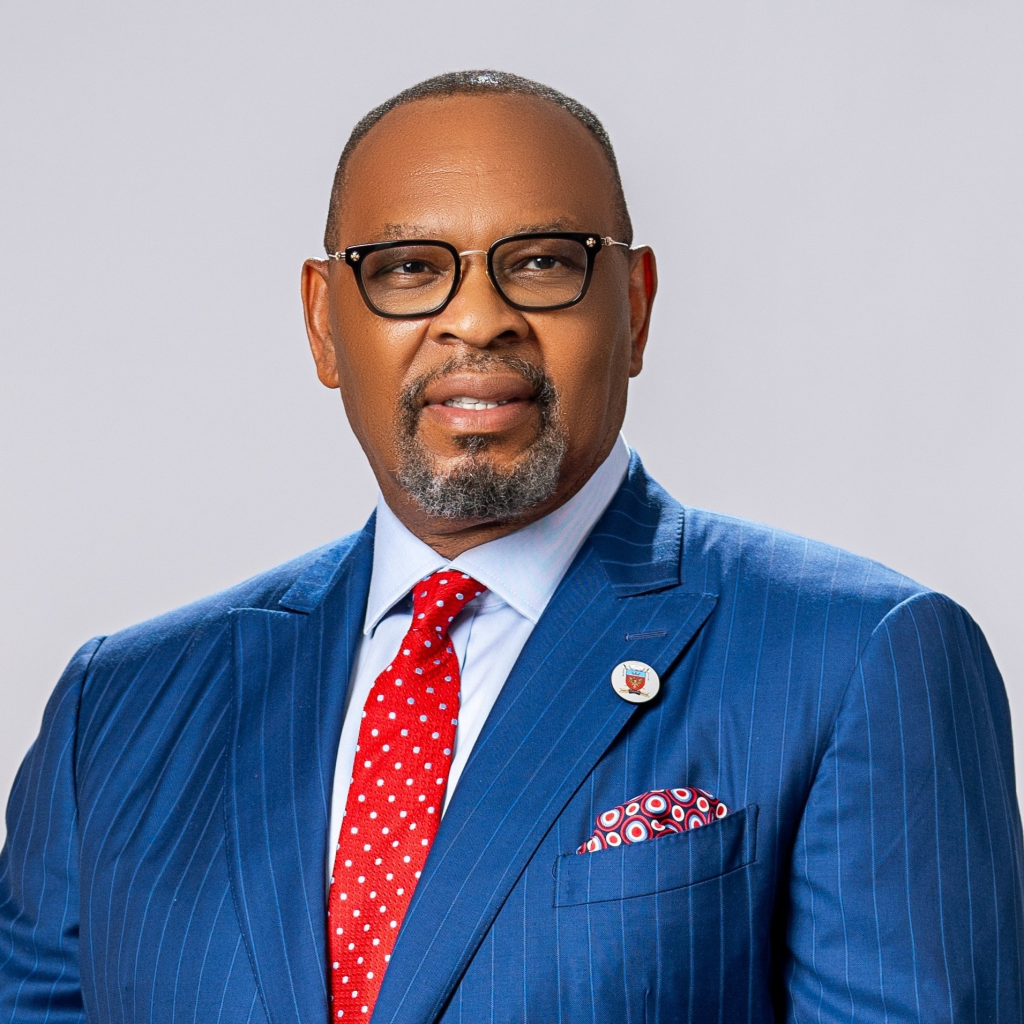Michael Olugbode in Abuja
National Human Rights Commission (NHRC), in collaboration with the United Nations Human Rights Office (OHCHR), called on Nigerian border officials to uphold the human rights and dignity of migrants, stressing that migrants remain among the most vulnerable groups and must be treated with compassion and fairness.
The call was made during a High-Level Briefing with Border Officials held in Abuja, to share findings from recent human rights monitoring and assessment missions conducted at the Seme Border in Lagos State and Idiroko Border in Ogun State.
The event, which brought together representatives of key border agencies, development partners, and human rights experts, aimed to strengthen Nigeria’s border governance through a human rights-based approach, and to translate monitoring outcomes into actionable reforms.
Executive Secretary of NHRC, Dr. Tony Ojukwu, stated that migration was a global and complex phenomenon driven by multiple factors.
Ojukwu emphasised that regardless of immigration status or motivation, every migrant was entitled to the same human rights protection and dignity.
He said, “Migration is a complex and continuing reality of our time, shaped by multiple drivers ranging from economic aspirations and regional mobility, to conflict, insecurity, and climate change.
“While the motivations differ, one principle remains constant: every migrant, irrespective of their status, is entitled to the full protection of their human rights under international and national law.”
Ojukwu reaffirmed NHRC’s legal mandate as Nigeria’s national human rights institution responsible for monitoring, investigating, and reporting on human rights conditions, including those at border posts.
He said the commission’s mission, in partnership with OHCHR and International Organisation for Migration (IOM), sought to ensure that border management practices reflected Nigeria’s obligations under international law.
He said, “The National Human Rights Commission, under its statutory mandate to promote, protect, and enforce human rights in Nigeria, has a clear responsibility to monitor, investigate, and report on the human rights situation across the country, including at border posts.
“It is on this basis that the commission, in partnership with OHCHR and IOM, undertook these monitoring missions. Our aim was to ensure that Nigeria’s borders are managed in ways consistent with human dignity, international obligations, and the rule of law.”
Ojukwu stated that migrants often faced heightened vulnerabilities at border areas where oversight was weak and remedies were scarce.
He explained that NHRC’s assessment examined screening procedures, referral mechanisms, and safeguards for vulnerable persons, such as women and persons with disabilities.
According to him, “Migrants often face heightened vulnerabilities at border points where oversight is limited, remedies are scarce, and violations too frequently occur.
“The assessments therefore sought to examine entry and exit procedures, screening and referral mechanisms, safeguards for vulnerable persons (women, persons with disabilities and key populations etc.), access to services, and the overall human rights environment at the border including the welfare of border officials.”
Ojukwu stressed that the purpose of the briefing was to move beyond identifying problems towards developing practical and time-bound solutions, fostering inter-agency collaboration and accountability.
He said, “This High-Level Briefing therefore provides a unique opportunity to move beyond diagnosis into practical solutions. Our goal is to translate monitoring findings into tangible commitments actionable steps, agreed timelines, and a follow-up mechanism that ensures accountability and progress.
“In doing so, we affirm Nigeria’s commitment to human rights, rule of law, and dignity for all persons within our borders.”
Representing the Senior Human Rights Adviser at the Office of the UN Resident and Humanitarian Coordinator, Ms. Adowa Kufuor, Human Rights Officer, Mrs. Esther Michael Sawa, spoke on behalf of the United Nations Human Rights Office.
She explained the Promise Project, a joint initiative between OHCHR and UNODC, was designed to help West African states build human rights-based frameworks for managing migration and combating violations related to irregular migration.
She said, “This programme is under the project called the Promise Project, which is a joint initiative between UN Human Rights Office and the UNODC.
“It’s aimed at strengthening the capacities of West African states to develop a human rights-based response to smuggling of migrants and to effectively combat human rights violations related to irregular migrations in West Africa.”
She emphasised the human dimension of migration, stating that migrants are often exposed to violence and discrimination, and therefore deserve empathy and protection.
According to her, “We cannot overemphasise the protection of the rights of migrants and their dignity, as a migrant you are vulnerable, you are exposed.
“I remember the case… that a migrant was stabbed while she was in the bus. So, imagine you are somewhere and somebody just stabs you and somebody just attacks you. You have nowhere to go. You are very vulnerable.”
Sawa highlighted the need for joint efforts and shared accountability among government agencies, partners, and communities to ensure effective protection of migrants’ rights.
“The protection of migrants and strengthening our border is not a task for one agency or one person alone. It requires joint efforts, our shared commitments, and our collective accountability,” she stated
Sawa clarified that the meeting was not intended to cast blame but to identify both positive practices and challenges in order to develop workable, rights-centred solutions.
She said, “We are not here to castigate. There are so many good things that are happening at the border. But there are also some things, there are some gaps and challenges that we have identified. And we thought it is very important that we discuss and find ways to overcome them.”
Ms. Jennifer S. Aga of NHRC and Mrs. Esther Michael Sawa of OHCHR jointly conducted the monitoring, with the key findings presented by Jennifer S Aga.
The assessment revealed several systemic human rights and operational challenges at both Seme and Idiroko borders.
The assessment found no standardised procedures for identifying trafficking victims or vulnerable migrants, leaving officers to act on discretion.
Referral pathways to NAPTIP were found to be weak and under-resourced, with no permanent presence of the agency at the borders.
Officials often used personal funds to transport or care for victims due to logistical and funding gaps.
Infrastructural challenges were also highlighted, with border holding centres described as inhabitable, lacking electricity, sanitation, and gender-segregated facilities.
Many victims were kept in unsuitable conditions due to the absence of safe shelters, while language barriers further complicated communication, as no trained interpreters were available for non-English speakers.
The assessment identified over 130 unofficial border routes at Idiroko frequently used for trafficking and smuggling, while security agencies faced severe resource shortages, including limited patrol vehicles and equipment.
Communities also reported harassment, sexual violence, and exploitation near border zones.
NHRC and its partners recommended establishing standardised victim identification tools, improving border infrastructure, providing emergency assistance funding, deploying interpreters, and enhancing training and inter-agency collaboration.
They further urged that the root causes of irregular migration, such as poverty, unemployment, and insecurity, be addressed to prevent exploitation and trafficking.
The commission reaffirmed that protecting migrants’ rights strengthened Nigeria’s commitment to human rights, the rule of law, and human dignity. It called for sustained collaboration among all stakeholders to implement the findings of the border assessments.



